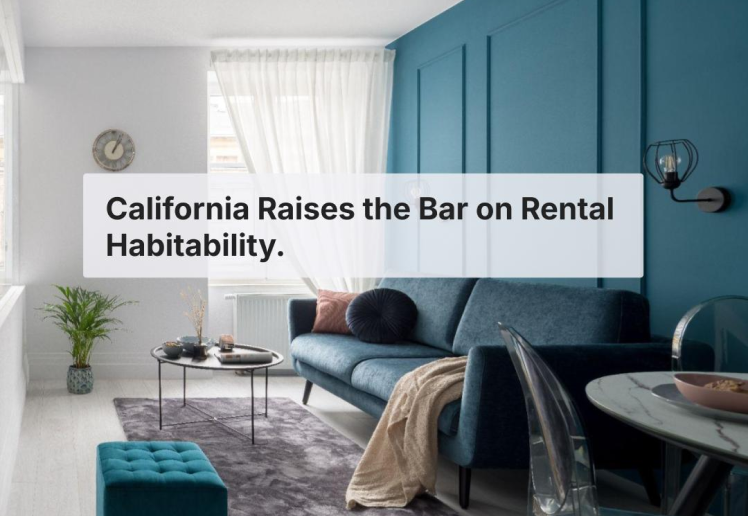The U.S. housing market is the hottest it's been in decades, which means landlords are reevaluating their pricing more carefully. The temptation to increase rent by higher and higher percentages is there. Nevertheless, property owners and managers need to be careful not to violate renter rights in their state or outpace the market and lose potential tenants. In this article, we'll take a closer look at Washington's rent control laws, and how you can best price your rental for success.
Washington state, like most states in the U.S., has lenient laws regarding rent control. In most counties in the state, rent control is not allowed; however, there are some restrictions that landlords and property managers need to understand before changing their rental rates.
When Can a Landlord Increase Rent?
Washington state requires landlords to abide by the written terms of their lease, and therefore not increase rental rates within a lease term unless specifically specified otherwise. After the end of the lease term, they may change the rental rate if both parties agree to a change in conditions of the lease, or if the current tenant decides not to renew. For month-to-month leases, a landlord may change the rental rate at the end of the month as long as appropriate notice is given.
Like all other states, Washington prohibits rate increases in the case of discrimination or retaliation in an attempt to force tenants out.
Is there a Rent Increase Limit?
Washington does not have a rent maximum or max percentage increase for rentals, which means raising rent is entirely at your discretion between leases. However, the average rental increase is not as high as in other states like Florida, which has averaged a 20% housing cost increase in recent years. Most Washington rentals have increased no more than 12% in recent years.
The state of Washington does not limit the frequency of rent increases either, but they do require a 60-day notice for year-over-year leases. Some cities, like Seattle, require a 60-day notice regardless of lease term unless the tenancy is subsidized, and advocates are fighting for even longer terms. Some argue that a six-month notice should be required with the current rise in rental rates across the country.
Rent Increases Since 2019
Washington has had the 14th highest rent increase since 2019, with cities like Seattle seeing a major influx of residents in recent years. The Evergreen state's cultural, workforce, and educational opportunities are driving young professionals to the Pacific Northwest at astounding rates.
The median rent in Washington rose from $1,571 in 2019 to $1,782 in 2022, on pace with national averages and wage increases in Washington. However, some areas saw even bigger rent increases, with Yamika averaging a 29% increase in that time, and Spokane Valley training with a 23% increase. Washington rates are climbing at a higher rate than neighboring Portland, which saw a 19% increase over three years.
However, renters are happy to pay to find apartments with proximity to urban job opportunities and some of the incredible natural wonders within the state. Therefore, landlords and property managers should price their units accordingly to ensure they are on pace with other local options.
Changes to Rent Notices in 2022
Washington is one of the new West Coast states that does not allow rent control by its counties. California and Oregon both have statewide rent control legislation, which is in part why the Washington area is seeing a major uptick in real estate investment in recent years. However, tenants still have more strict protections in Washington than in other states, including longer notice periods and other assistance.
Seattle is currently considering a six-month notice requirement for long-term tenants. Tenant advocates are also fighting to require landlords to pay relocation assistance for low-income tenants if rental rates are increased by 10% or more and they decide to move out. In addition, some counties, like King County, require a four-month notice for rent increases over 3% in unincorporated areas. In comparison, the county's largest city Auburn requires four months' notice for increases above 5%.
Washington state is also considering lengthening its statewide notice requirement of 60 days to six months (but no more than 220 days) for any rent increase of more than 7.5%. While this is a drastic change, especially for a state that is only 14 highest in rent increases, it shows that local and state legislation are taking proactive steps to avoid a housing crisis.
What Landlords and Property Managers Need To Know
Landlords in the Washington area should consider rent increases when applicable but should be careful not to outpace the local market. The increases in notice periods may make landlords think twice about raising rates above a certain threshold for fear of losing quality tenants. A reliable and non-troublesome long-term renter may be more valuable even at a lower cost, especially with the cost of a vacancy being so high in today's market.
If you're looking for a competitive advantage to price your rentals accurately, try RentSpree's Rent Estimate tool for your local area. We use an extensive nationwide database that helps you compare rental rates across your city, state, and country to determine the ideal price for your unit. THis takes the guesswork out of pricing and ensures you secure the best tenants in your area.
To learn more about Rent Estimates and other RentSpree tools you can use to make your Washington rental more competitive, contact us to schedule a demo.
Screen and lease with confidence
Find qualified tenants faster than ever with results you can trust.


Related posts
Want to make rentals easier to manage?
Save time on marketing, screening, and payments. Join over 2 million agents, landlords, and renters using RentSpree.



.jpg)


